別忘記生活+ Pierre Hhadot
Don’t Forget to Live
Goethe and the Tradition of Spiritual Exercises
With a foreword by Arnold I. Davidson and Daniele Lorenzini.
In his final book, renowned philosopher Pierre Hadot explores Goethe’s relationship with ancient spiritual exercises—transformative acts of intellect, imagination, or will. Goethe sought both an intense experience of the present moment as well as a kind of cosmic consciousness, both of which are rooted in ancient philosophical practices. These practices shaped Goethe’s audacious contrast to the traditional maxim memento mori (Don’t forget that you will die) with the aim of transforming our ordinary consciousness. Ultimately, Hadot reveals how Goethe cultivated a deep love for life that brings to the forefront a new maxim: Don’t forget to live.
- N'oublie pas de vivre. Goethe et la tradition des exercices spirituels, Albin Michel, 2008. (Bibliothèque Idées). ISBN 978-2-226-17905-0.
- Don't Forget to Live: Goethe and the Tradition of Spiritual Exercise, translated by Michael Chase with an foreword by Arnold A. Davidson and Daniele Lorenzini, Chicago, University of Chicago Press, 2023. ISBN 978-0-226-49716-7
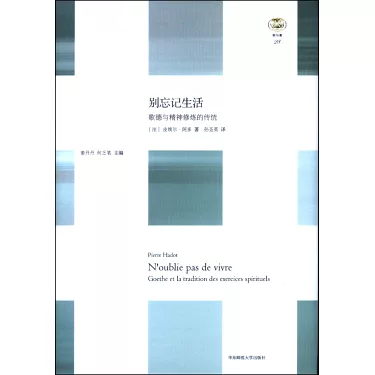
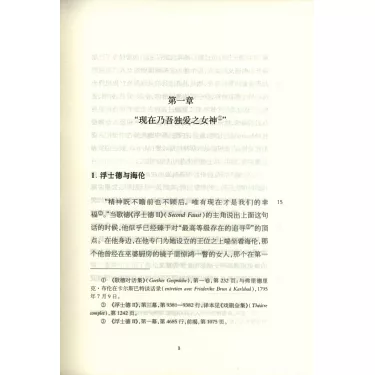
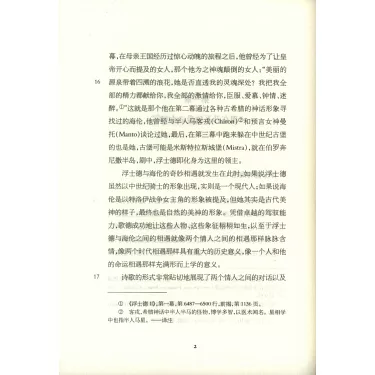
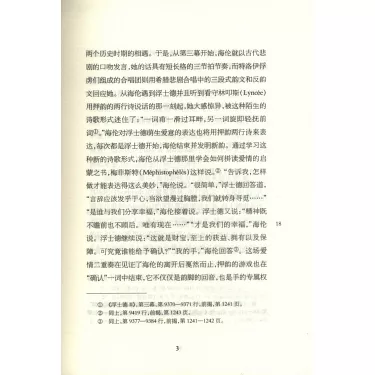
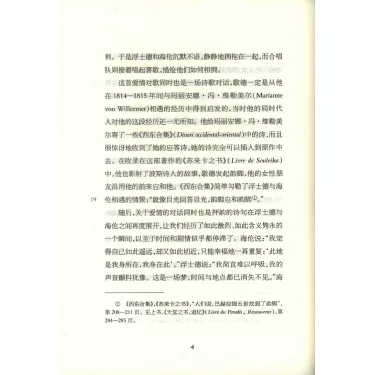
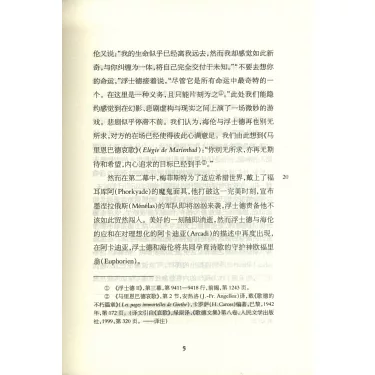
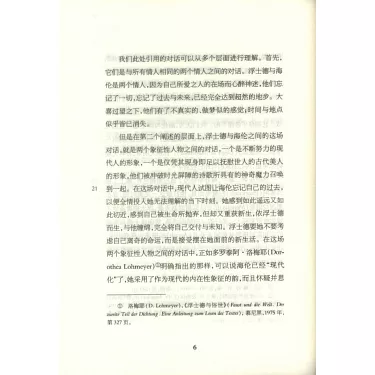
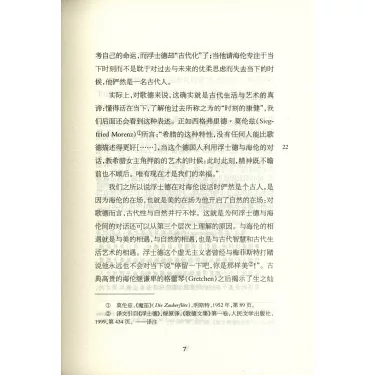
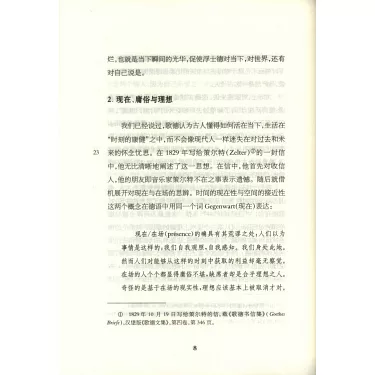
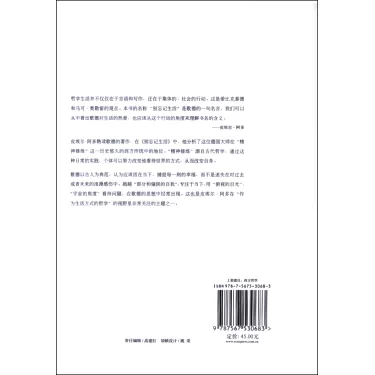
簡體書>哲學/宗教>哲學>西洋哲學>近代哲學
別忘記生活:歌德與精神修煉的傳統
作者:(法)皮埃爾·阿多
語言:簡體中文
出版社:華東師範大學出版社
出版日期:2015/03/01
內容簡介「精神修煉」源自古代哲學,通過這種日常的實踐,個體可以努力改變他看待世界的方式,從而改變自身。皮埃爾·阿多熟讀歌德的著作,在《別忘記生活》中,他分析了這位德國大師在「精神修煉」這一歷史悠久的西方傳統中的地位。
「別忘記生活」是歌德針對「勿忘死亡」、「思考死亡」提出來的。對歌德來說,生活就是保持積極的狀態,就是在當下采取行動。歌德以古人為典范,認為應該活在當下,捕捉每一刻的幸福,而不是迷失在對過去或者未來的浪漫感傷中。超越「部分和偏狹的自我」,專注於當下,用「俯視的目光」、「宇宙的角度」看待問題,在歌德的思想中經常出現。這也是皮埃爾·阿多在「作為生活方式的哲學」的視野里非常關注的主題之一。
目錄第一章 「現在乃吾獨愛之女神」
1. 浮士德與海倫
2. 現在、庸俗與理想
3. 田園詩般的阿卡迪亞
4.無意識的康健抑或后天獲得的安然?
5.對當下的哲學體驗
6.歌德思想中的古代哲學傳統
7.歌德之當下、瞬間、存在於此
第二章 俯視的目光與宇宙遨游
1. 瞬間與俯視的目光
2. 古代人俯視的目光。山峰與想象的飛翔
3. 古代哲學家眼中俯視的目光的哲學意義
4. 中世紀和現代的傳統
5. 歌德筆下不同形式的俯視的目光
6. 歌德之后的俯視的目光
7. 氣球駕駛員與宇航員
第三章 希望的翅膀,《原辭》
1. 代蒙,堤喀
2. 代蒙、堤喀、厄洛斯、阿南刻以及厄爾庇斯
3. 人類的命運
4. 自傳角度?
5. 神杖
6. 厄爾庇斯,希望
第四章 對生命和世界說是
1. 存在於此的快樂很大
2. 從生存本身體會到的快樂更大
3. 對變遷和可怖之物說是
4. 歌德與尼采
結語
參考書目
索引
收回
作者介紹皮埃爾·阿多(Pierre Hadot,1922—2010),法國20世紀著名哲學家、史學家與文獻學家,法蘭西學院榮譽教授。主要從事古希臘羅馬思想研究,以研究古代哲學尤其是新柏拉圖主義和斯多亞主義而聞名世界。阿多是福柯最欣賞的哲學家之一,也是最早把維特根斯坦介紹到法國的主要人物之一。他強調古代哲學並非一套理論學說,而是一種與生活方式、生命品質密切相關的精神修煉。代表著作:《精神修煉與古代哲學》、《古代哲學的智慧》、《作為生活方式的哲學》、《維特根斯坦和語言的界限》、《伊西斯的面紗》等。
友誼﹕歌德與席勒(1794-1805) HC読書雑記 Weimar Jena Homboldt brothers G.E. Lessing…
Amalie Becker (1778-97)
Goethe immortalized her in a poem which first appeared in Schiller's Musen Almanach of 1799.[1]
Goethe wrote his epilogue to the "Song of the Bell" shortly after Schiller’s death in order to have it read by the actress Amalie Becker at the conclusion of a memorial celebration in the Lauchstädt Theater. After the three last acts of Maria Stuart, the "Song of the Bell" was recited with distributed roles. "
By "spiritual exercises"[11] Hadot means "practices ... intended to effect a modification and a transformation in the subjects who practice them
Hadot's recurring theme is that philosophy in Antiquity was characterized by a series of spiritual exercises intended to transform the perception, and therefore the being, of those who practice it; that philosophy is best pursued in real conversation and not through written texts and lectures; and that philosophy, as it is taught in universities today, is for the most part a distortion of its original, therapeutic impulse. He brings these concerns together in What Is Ancient Philosophy?,[15] which has been critically reviewed.[16] In 1994 Hadot published an article entitled "There Are Nowadays Professors of Philosophy, but not Philosophers",[17] in it Hadot shows us that the American philosopher, Henry David Thoreau, via his book Walden, exemplifies the 'true philosopher', one who lives his philosophy by living simply in natural surroundings.
Much of what Hadot wrote about in his most popular books deals with the personal transformation experienced by people who 'lived philosophy' rather than those who studied philosophy as an academic endeavor. Hadot didn't 'discover' the practice and benefits of 'spiritual exercises' but he 'rediscovered' it and brought it back into modern day philosophical conversation much like previous philosophers did in the past, namely, Erasmus, Montaigne, Descartes, Kant, Emerson, Marx, Nietzsche, William James, Wittgenstein, Jaspers, and Rilke.[18] Stoicism is undergoing a revitalization,[19] with 25 podcasts on Spotify alone. Furthermore, CBT, Cognitive Behavioral Therapy, a highly successful form of psychological therapy, is based on the teachings of Stoicism.[20]
阿多反復出現的主題是,古代哲學的特點是一系列精神練習,旨在改變實踐者的感知,從而改變他們的存在。哲學最好是在真實的對話中而不是通過書面文本和講座來追求;而當今大學所教授的這種哲學在很大程度上是對其最初的治療衝動的扭曲。他將這些擔憂集中在《什麼是古代哲學?》一書中,[15],該書已經過嚴格審查。[16] 1994年,哈多發表了一篇題為“當今有哲學教授,但沒有哲學家”的文章,[17]其中哈多向我們展示了美國哲學家亨利·大衛·梭羅通過他的著作《瓦爾登湖》,體現了“真正的哲學家”,他通過簡單地生活在自然環境中來踐行他的哲學。
阿多特在他最受歡迎的書中所寫的大部分內容都涉及“生活在哲學中”的人所經歷的個人轉變,而不是那些將哲學作為學術努力來研究的人所經歷的個人轉變。阿多特並沒有“發現”“精神練習”的實踐和好處,但他“重新發現”了它,並將其帶回到現代哲學對話中,就像以前的哲學家過去所做的那樣,即伊拉斯謨、蒙田、笛卡爾、康德、愛默生、馬克思、尼采、威廉·詹姆斯、維特根斯坦、雅斯貝爾斯和里爾克。[18]斯多葛主義正在復興,[19] 僅 Spotify 上就有 25 個播客。此外,CBT(認知行為療法)是一種非常成功的心理治療形式,它基於斯多葛主義的教義。 [20]
沒有留言:
張貼留言